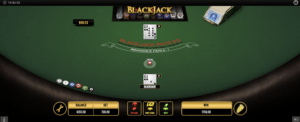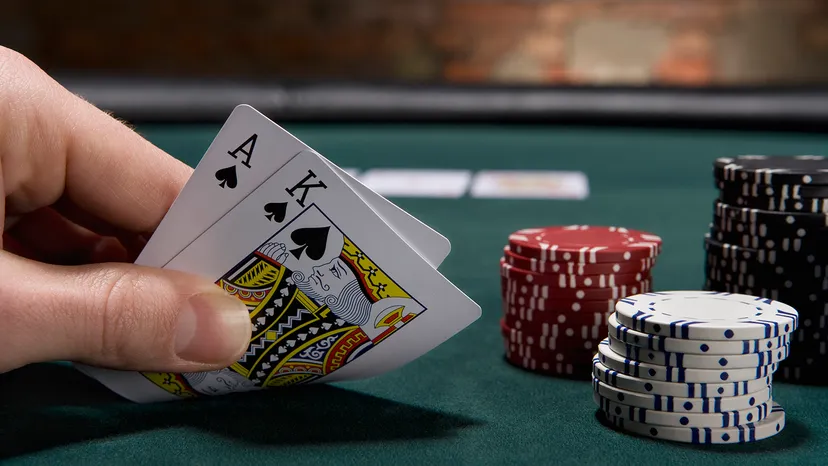Intro to Blackjack
For this week’s critical play, I decided to play the popular card game, Blackjack on the site casino.org. Blackjack is a game played between a player and a dealer where the objective is to accumulate a hand with a value closer to 21 than that of the dealer’s. If you exceed 21, the dealer wins. Blackjack is enjoyed by a wide variety of players from casual to seasoned gamblers and even math lovers who gain satisfaction from strategy rather than luck.
Blackjack begins with an initial deal which involves the dealer distributing two cards to each player, including themselves. The player’s cards are dealt face-up while the dealer’s cards are face-down. Then, it is the player’s turn to make one of several moves: hit, stand, double down, split. If the player does not exceed 21 and terminates their turn by standing, the dealer makes their move by revealing their face-down card. The dealer must hit until they reach a total of 17 or more. After both the player and dealer complete their turns, the hands are compared and the winner is crowned accordingly.
Gameplay
While Blackjack has several options that a player can take during their turn, I found that I played the first few rounds relatively safely. I would only bet 50 (fake) dollars and would not hit when my hand had a value of 16 or more. Even though I knew that the right hit would get me closer to 21 and thus closer to winning, I didn’t want to risk it. However, that all changed when I won 5 times in a row. Winning so much caused me to gain false confidence in my abilities. Despite not having a robust strategy, I thought to myself, “Wow I’m good at this” which is really interesting considering it was all luck. In an attempt to try to understand why these games are so addicting, I tried to imagine that the money I was betting was real. After acquiring so much money in a way that felt basically effortless, I started betting more money and started taking more risks by doubling down and hitting even when my hand had a value of 18. My reckless playing caused me to lose so much money, but at this point, I felt like I was looped in and had to try to gain it all back.

Risk of Addiction
One big way that Blackjack feeds into addiction is by making luck feel like an intrinsic quality. This relates back to my point about how winning money was effortless which makes the player feel like even if they lose money, it couldn’t possibly be that hard to gain it all back. They got all that money in the first place with their “skills” and “strategy”, so they must be able to get it back … right? The answer is not always, but Blackjack makes it feel like you can even though it all comes down to chance (unless you’re card counting of course).




